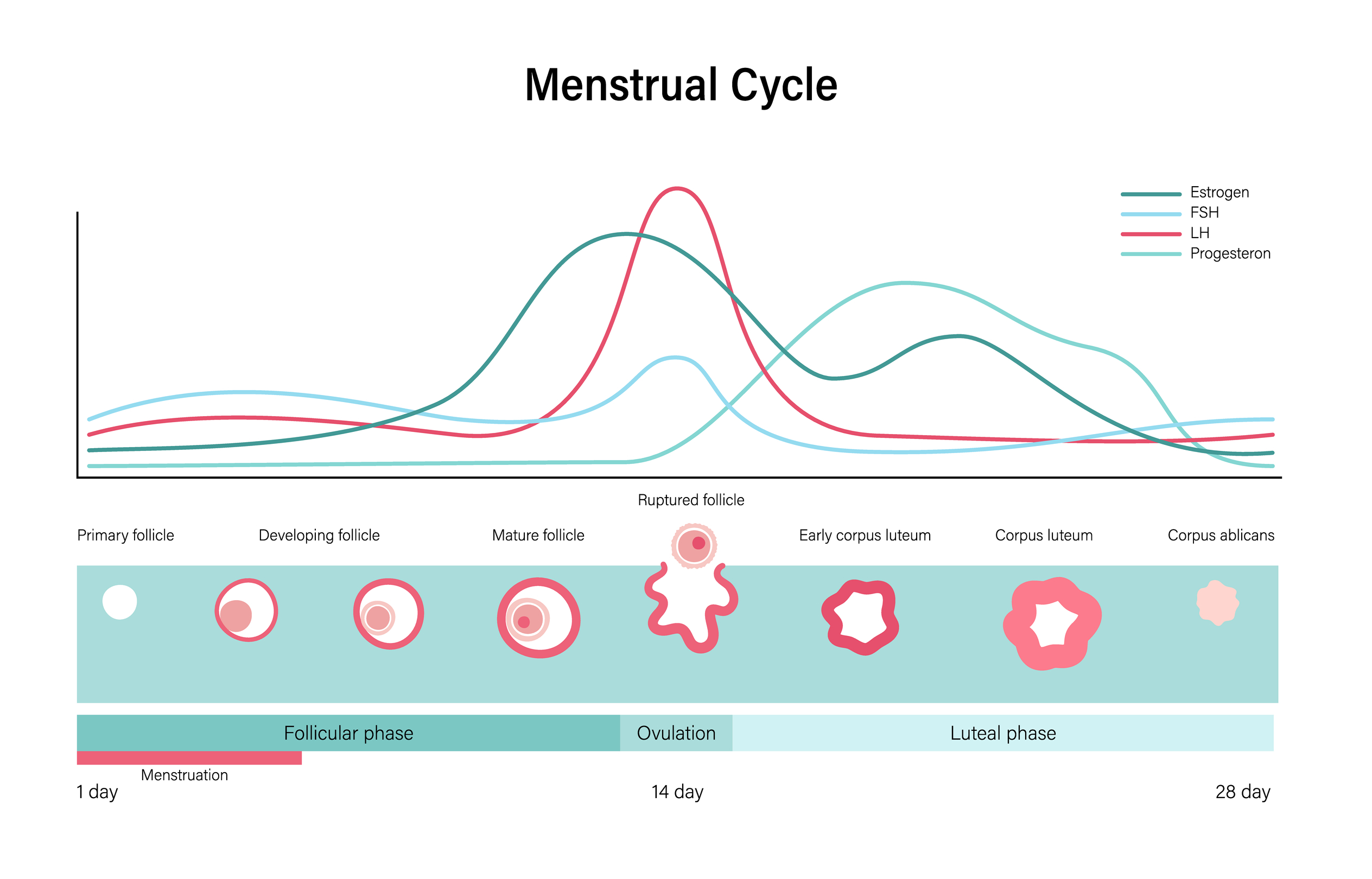If you are someone who has a uterus and menstruates then bleeding between periods can be a bit unsettling, however, there are many different reasons for this happening.
From vaginal discharge to bleached patches on your underwear, there always seems to be something being expelled from down there that makes you scratch your head. Now, there may be another thing – intermenstrual bleeding.
It should be noted, that this type of bleeding is different from irregular periods, when the gap between two periods is less than 21 days or more than 35 days.
The average menstrual cycle normally lasts around 28 days – during this type, a lot of changes happen. The first part of the cycle is called the follicular phase and consists of the rise of estrogen, this causes fluid-filled sacs in the ovaries, called follicles, to develop. Often these follicles house immature eggs. Typically, there is one dominant follicle that is bigger and healthier than the rest, and when the luteinizing hormone (LH) peaks, the dominant follicle releases an egg.
This egg gets vacuumed up by a fallopian tube and it slowly travels down toward the uterus. The uterus is a lovely, padded area that is great for an egg and is a lush environment made up of many layers of the endometrium. The luteal phase prepares the uterus by increasing the progesterone to thicken the lining. If no fertilization happens, then the body sheds the lining through a period, which typically last three to five days.

The complexity of the menstrual cycle.
Image credit: Pikovit/ Shutterstock.com
Hormonal fluctuations
As the human body is a big ball of wibbly wobbly hormony stuff, hormonal fluctuations can cause unexpected bleeding. These fluxes are the ones that like to make you cry at 11 pm on a weekday over a bowl of popcorn while watching Marley & Me (if you know, you know).
So, it is not a surprise that if your hormones are off balance, it can also cause some bleeding. Some conditions may make people more prone to this, like polycystic ovaries, endometriosis, menopause, or thyroid gland issues.
Birth control pills
When people start hormonal contraception, it is common to get irregular bleeding in the first few months. This can also be called breakthrough bleeding, and it is due to the body adjusting to the different hormones. Also, if a pill is missed in the course, this can cause some spotting.
The emergency contraceptive pill also has a side effect of spotting as it causes a change in the hormone levels.
Miscarriage or abortion
Miscarriage, abortion, or ectopic pregnancy can all cause bleeding.
Changes to the vagina
Different changes can cause bleeding from the vagina, such as injury, dryness (similar to having dry lips and getting a split lip), and cervical ectropion or erosion.
Noncancerous growths
Some benign growths in the womb can cause bleeding, for example, uterine polyps or fibroids. Polyps are usually benign and can attach to the inner wall of the uterus and expand into the uterus. They can range from a few millimeters to a few centimeters. Fibroids are growths that develop in or around the womb and are made up of muscle and fibrous tissue.
Cancerous growths
Cancers such as cervical, womb, and vaginal can also cause unexpected bleeding. Cervical cancer is checked for during cervical screening, whereas womb is more common in post-menopausal people.
Some disorders and diseases
Some bleeding disorders like Von Willebrand disease can cause spotting. This is an inherited bleeding condition that can disrupt blood clotting. This condition can also cause heavy bleeding or bleeding during or after labor.
Sexually transmitted infections like chlamydia, gonorrhea, and pelvic inflammatory disease (PID) can also cause spotting.
Stress
What causes corals to stress out? Current events… but on a serious note, corals can change color or die when stressed out. While humans are a tad more complicated than these colonial marine invertebrates, we still experience weird bodily functions when stressed out. Some people get anxiety-induced irritable bowel syndrome and some intermenstrual bleeding.
Implantation bleeding
Ten to 14 days after conception, if an egg has been successfully fertilized, then a person can have implantation bleeding. This is where the egg buries into the lining to anchor itself for a nine-month journey, and the uterus can shed parts of the endometrial lining.
Overall, if you have any unexpected or unusual bleeding between your periods and you are concerned, always consult with your general practitioner.
The content of this article is not intended to be a substitute for professional medical advice, diagnosis, or treatment. Always seek the advice of qualified health providers with questions you may have regarding medical conditions.
All “explainer” articles are confirmed by fact checkers to be correct at time of publishing. Text, images, and links may be edited, removed, or added to at a later date to keep information current.
Source Link: Another Fanny-Tastic Thing That People With Uteruses Sometimes Have To Deal With